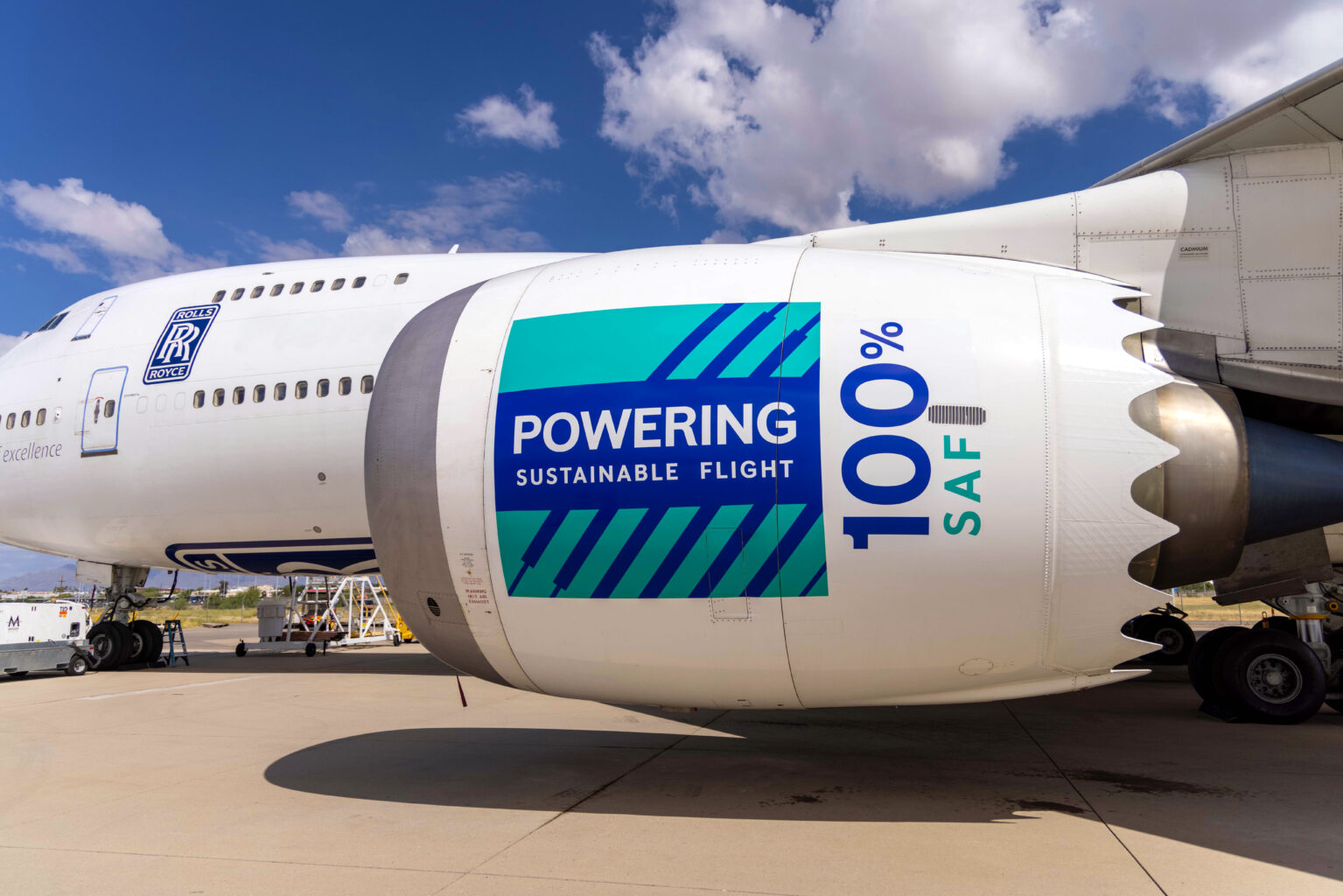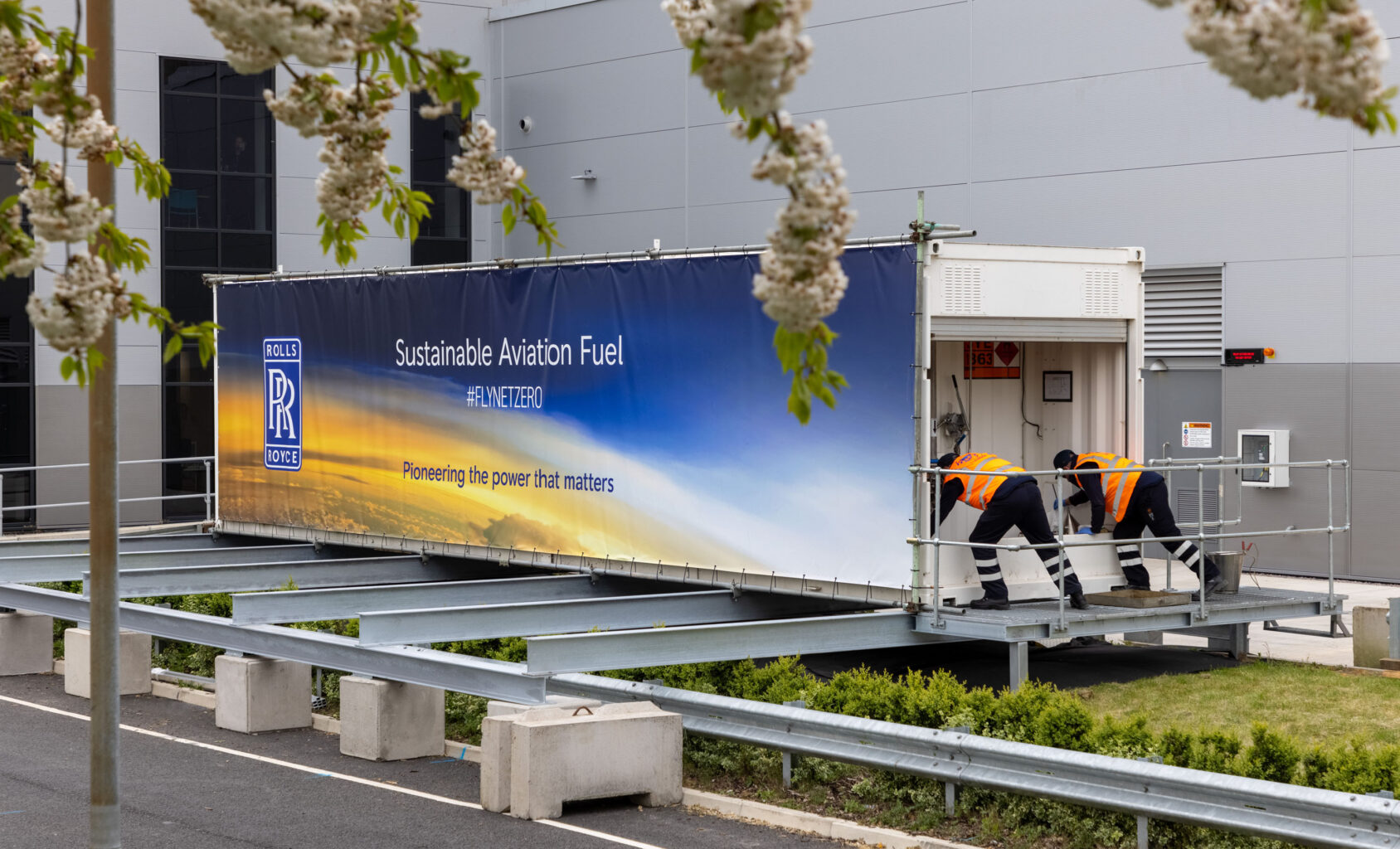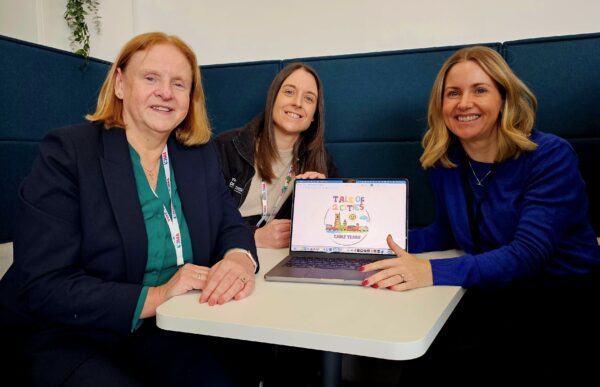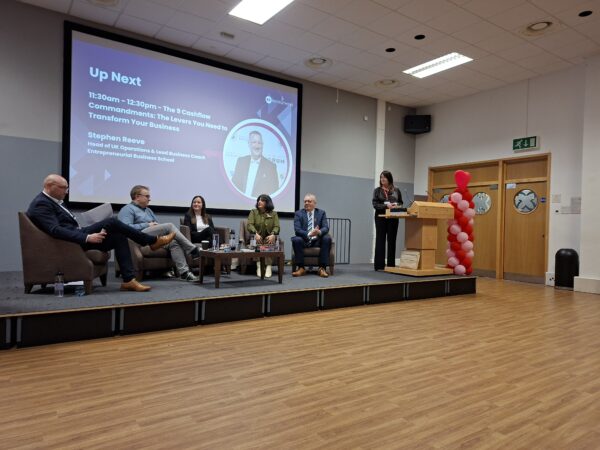Latest News | 4 November 2025
Rolls-Royce spearheads ‘smarter’ sustainable aviation fuel project

Rolls-Royce is leading a new UK project to find smarter ways of using sustainable aviation fuel (SAF).
The engineering giant, which has its civil aerospace division at Sinfin, Derby, has embarked on the project in an effort to increase the fuel’s effectiveness and role in reducing non-CO2 emissions.
Co-funded through the Non-CO2 Programme, the Quantifying Reduction in Thermal Contrails by Optimising SAF (QRITOS) project brings together Rolls-Royce, British Airways, Imperial College London and Heathrow.
The benefits of SAF for reducing end-to-end CO2 emissions from fuel are well understood, and SAF is expected to play a key role in aviation’s decarbonisation journey.
However, in-flight measurements behind aircraft have also shown SAF’s potential to reduce the number of ice crystals in contrails and therefore the potential climate impact of these thin clouds of ice particles that can form behind aircraft.
Alan Newby, research and technology director at Rolls-Royce, said: “SAF will not only play a vital role in decarbonising aviation, but has also been shown to reduce certain non-CO2 emissions.
“This project will demonstrate smarter ways of using SAF which could unlock additional value through reducing non-CO2 climate effects as well.”

The amount of SAF currently available is only a small proportion of aviation’s overall fuel requirements.
It is typically mixed with conventional fossil fuel, resulting in wide-scale deployment at very low SAF blend ratios.
However, SAF use is expected to increase in the UK with the introduction of the SAF mandate, which came into force at the start of the year and will see 10% of SAF in the UK fuel in 2030 and 22% in 2040.
According to Roll-Royce, constantly changing weather means different flights cause contrails at different times and locations, yet most of the potential climate impact comes from only a small proportion of flights.
This creates an opportunity for smart SAF use targeting those flights expected to form persistent contrails.
The QRITOS project aims to demonstrate the feasibility of this approach, at one of the world’s busiest airports.
It will do this by combining data from British Airways flight trials, advanced modelling and satellite observations to monitor contrail formation following this targeted SAF usage.

Concluding in April 2027, the two-year project will also enhance forecasting methods, advance understanding and modelling of contrail formation, and develop verification methods based on satellite data.
Marcin Dutka, environmental sustainability technologist at Rolls-Royce and project manager of QRITOS, said: “Measurements have already shown that fuel composition can influence contrail properties.
“This project aims to demonstrate how contrail climate impact might be reduced by targeting SAF at flights predicted to form persistent contrails.”


